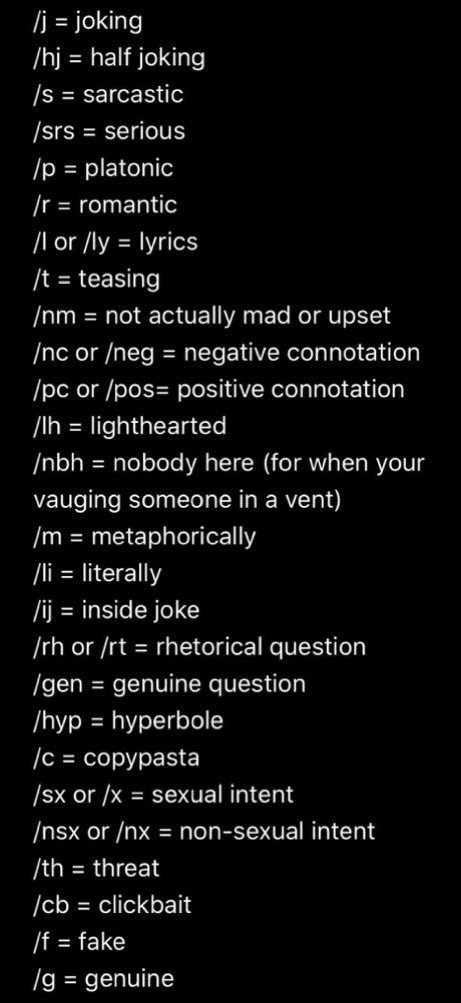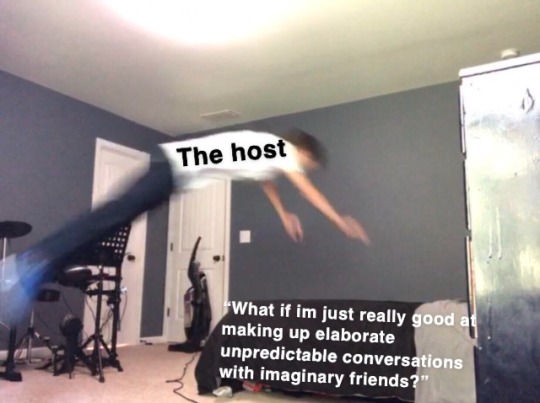Note
You know what would be funny? If the universe got confused and accidentally put the spirit of Demise and the soul of the hero in the same dude
Kejekdkrkjfjf okay but IMAGINE
There are two wolves inside of you, one craves to feast on the souls of the innocent, the other would like a bagel. Fortunately, the Hero's Spirit is JUST stronger then that if Demise, so you don't go on a murderous rampage to sate your thirst with blood.
However this divine comedy renders what is not battling Demise of the Hero's Spirit, just A Dude™.
You order a croissant
Zelda thinks it's hilarious.
1K notes
·
View notes
Text
okay so the upcoming direct has me thinking about my update wish list (not necessarily my predictions for this direct)
new gameplay mechanic of some kind, of course (e.g. Brewster or another new special character; new event)
new furniture set (i would love especially something that combines cottage and kidcore aesthetics, like a bug themed set – in addition to the bug-off stuff – or like a patchwork/plushie theme)
new villagers!!!!! especially a lazy and cranky sheep villager 🥺but i’d be excited for any villagers we haven’t seen before
the ability to have one more villager on your island (big ask I know…. but they did it in new leaf with the amiibo update I’m pretty sure so??)
a new type…………. look, i know it’s unlikely, but how cool would it be???
and finally….. the most outrageous for last….. i want to be able to have another island with the same switch console. i know, i know!!! i’ve been thinking about this a lot, and of course if they just suddenly allowed one switch to have two islands, everyone who got a second switch would be really upset. however! what if there was some kind of DLC that cost less than the full game and allowed us to have like a second mini-island that we can decorate and go to and stuff (or better yet, if it was free)??? it wouldn’t have to be as big as the main one but man 🥺🥺i just really want it to happen
35 notes
·
View notes
Note
Is gatekeeping inherently bad, or only negative in some contexts and beneficial in others?
Hi,
I assume that you mean gatekeeping communities and terms, not "gatekeeping" as in a function some alters perform to control switching, access to memories, or access to other dissociated materials!
I think that gatekeeping communities is vital to keeping communities safe, healthy, and productive. For example, communities for minors shouldn't allow in adults, and communities that discuss adult content shouldn't allow in minors. On many survivor forums, support-people -- such as partners, friends, or therapists -- may have access to some subforums but not those where sensitive discussions occur in order to ensure that the survivors feel comfortable speaking freely and aren't worried about being watched and judged by non-survivors. Religious abuse survivors often have their own sections to talk so that they're not at risk of being lectured at by individuals who are religious and may not understand how religion can be used to cause harm. Individuals with DID/OSDD-1 may also have their own subforums both in order to provide a safe space for alters to talk and to ensure that the rest of the forum is a safe space for those without DID/OSDD-1 who may be confused by open discussion of parts in unrelated threads. Many communities, not just survivor communities, have subsections for women, LGBT people, racial/ethnic minorities, or other vulnerable groups, and these subsections rarely allow in allies or may only allow allies to access a subfolder within the wider space. All of these are normal, help to protect vulnerable people, and can model healthy boundaries about sharing information.
Outside of moderated spaces, gatekeeping terms and concepts can be more challenging or even impossible. However, I personally am still a firm believer in protecting the meanings behind important words and concepts. Language is an important way to communicate information, find others with similar experiences, and come to new realizations. This is especially true online, where other cues such as body language or context may not be possible or easy to obtain. Recklessly changing language can make it harder for others to understand you, harder for others to respond in a productive manner, and harder for observers to understand the conversation. Constantly changing terminology can create "in-groups" of those who know the lingo and "out-groups" of those who don't, and those in the "out-groups" can easily feel shut-out, isolated, or even judged or shamed for their lack of knowledge. Using language in very non-standard or inconsistent ways can also create access barriers to non-native speakers and those with language processing difficulties.
Additionally, as a researcher, precise language is very important to me! While I don't expect everyone to have an exact understanding of how every word is used by professionals, it's very frustrating to me to see important terms widened until anyone can claim them or identify into them for any reason. When a term loses boundaries, it loses meaning, and when it loses meaning, it loses any possible usefulness. "Trauma" is one such term that in some spaces has lost all meaning. By definition, "trauma" cannot refer to stressors that are within the range of theoretically normal or acceptable experiences for a culture, and it cannot be divorced from a perceived threat of serious harm. For example, moving is something that most children experience at least once, is not considered harmful to children, and so is not considered potentially traumatic no matter how stressful the child found it. In contrast, sexual assault is something that many women experience, but it is considered potentially traumatic because it's a violation of personal autonomy and has a high potential to cause long-term harm. Emotional and verbal abuse are also often considered traumatic, especially for children, because they can carry a covert or overt threat of physical harm or denial of necessary resources or support.
If I led a study on traumatic experiences, allowed anyone to contribute any answers about their history of trauma, and did nothing to cull answers that don't match DSM-5 or ICD-11 definitions of trauma, my data would be meaningless. If I applied for a grant to prevent childhood trauma but actually meant "any slightly negative childhood experiences," I'd be at high risk of targeting childhood stressors that are easier to fix but less impactful overall instead of addressing major but difficult to improve traumas such as child maltreatment, exposure to community violence, peer aggression, or deprivation. If a support group was formed for survivors of childhood trauma but had no way of defining this term, those who had experienced actual threatening events would likely feel further alienated and isolated if the group was primarily composed of individuals who had experienced only routine stressors or dedicated a large amount of time and focus to routine stressors. If clinicians who call themselves "trauma informed" actually mean that they can help with normal work or family stressors but have no knowledge of or experience treating actual traumas, they can do serious harm to clients who try to see them to process trauma and obtain help with posttraumatic stress.
While discussions online might carry less weight, erasing all boundaries between trauma and normal stressors still does no favors for trauma survivors. To the contrary, it removes useful language from survivors. It makes it difficult for survivors to understand their own experiences, find others with similar experiences, and communicate with support-people and healthcare providers. Discussions of common outcomes of trauma would in general be impossible, and there would be no benefit to survivors understanding their mental health struggles as posttraumatic. Non-survivors would also be even less likely to understand, support, or accommodate survivors if they view trauma as entirely subjective and something that they could theoretically experience on a weekly basis as part of routine desk work!
The same negative outcomes are possible when labels for mental health symptoms are misapplied, such as when "dissociation" is misapplied to any situation where someone is slightly inattentive or "intrusive thoughts" is misapplied to any random or unproductive thoughts (as has been the case in several viral Tumblr posts). Additionally, watering down these terms from their original meanings can lead to feelings of isolation or shame when people who actually have these experiences notice that the majority of people using the terms are referring to much milder, healthier, and less atypical experiences. People who have become used to labelling their own typical experiences with mental health labels may also be more likely to judge or shame those with the actual symptoms because, well, the healthy individual doesn't struggle with those weird and scary symptoms, so why should the actually mentally ill individual!
Finally, I’ll address what you’re probably actually asking, which is about non-traumagenic multiplicity. This is actually the hardest angle to address because it’s not straightforward or clear-cut. Survivor spaces should be for survivors regardless of their multiplicity or perceived system origin, but non-traumagenic systems probably shouldn’t be talking about their system in these spaces lest they cause confusion or offense. DID/OSDD-1 spaces obviously are not meant for other system types. However, having some spaces be shared can be helpful. For example, even some DID/OSDD-1 systems perceive a spiritual origin or influence to some or all of their parts, and they may find this helpful to discuss with individuals who view their entire system as spiritual. Additionally, it’s not uncommon for those who claim that their systems are endogenic to eventually realize that they’re actually traumagenic, but this realization is much less likely to occur if they’re shut out from all DID/OSDD-1 spaces. Finally, some systems like talking to other systems regardless of their perceived origin.
On the other hand, it has to be acknowledged that shared spaces do have some risks. For example, non-DID/OSDD-1 systems may inadvertently say very offensive or hurtful things, such as implying that alters are lesser because they’re not separate people or because they originate from trauma. They may be rude about people who attend therapy or downplay how important therapy is for those with DID/OSDD-1. They may also talk about traumatic “memories” of past lives, fictives, walk-ins, or similar in a way that’s uncomfortable at best for those who have actually experienced the trauma in question. There may also be a risk of harm if non-DID/OSDD-1 systems don’t buy into the need to take full responsibility across the system or to acknowledge that the material reality of the body holds much more weight than the identities of “headmates” (e.g., if a White system with a Black headmate doesn’t acknowledge that none of them have the right to talk over Black people or intrude on Black spaces). Obviously, there can be tension if a DID/OSDD-1 system doesn’t believe that other origins of multiplicity are possible (clearly if they push this belief on others, but also sometimes if they’re respectful but others can’t tolerate their difference in belief; this may also be the case for non-traumagenic systems who doubt some multiplicity origins, such as an endogenic system not believing in spiritual origins or a spiritual system believing that all psychological multiplicity has to be DID/OSDD-1). Finally, there might also be a bleed-over of concepts that really shouldn’t be cross-applied.
There are some concepts that are strictly relevant to traumagenic multiplicity, such as structural dissociation, trauma-holder parts, and abuser introjects. It would be hurtful and inappropriate for these to be misapplied by systems who haven’t experienced childhood trauma. On the other hand, some concepts are strictly relevant to non-traumagenic claims, like system-hopping, walk-ins, headmates dying, or anything else that isn’t possible for dissociated parts of the self. These concepts can do a lot of damage when they’re internalized by DID/OSDD-1 systems, and fear of getting confused about which concepts are possible or not in DID/OSDD-1 is a reason why many people with DID/OSDD-1 urge newly diagnosed individuals to avoid shared spaces. That said, some concepts are unfairly blamed on having originated in endogenic spaces -- such as alters being literally separate people -- when they actually originated in DID/OSDD-1 spaces, so it’s not as if avoiding shared spaces is all that’s needed to be protected from misinformation.
Terminology is another sticky area. Some terms really shouldn’t be used by anyone without DID/OSDD-1, including clinical language such as “alters.” It should go without saying, but this also includes DID/OSDD-1; it’s extremely offensive for someone not claiming to have experienced childhood trauma to insist that the DSM-5 or ICD-11 allow them to claim to have DID/OSDD-1. Other terms only apply to non-traumagenic systems and don’t make sense to apply to DID/OSDD-1 (unless someone is claiming a mixed origin), such as “walk-ins.” On the other hand, some terms would seem not to apply to DID/OSDD-1 or already have an equivalent in DID/OSDD-1, but they were still appropriated, with or without being redefined first. For example, “fictive” and “factive” were originally the endogenic mirror of “introject” in DID/OSDD-1, but these terms somehow became so commonly used in certain corners of the internet by people claiming DID/OSDD-1 that many systems now don’t realize their origin. The same is true for “median,” which was originally the endogenic answer to “midcontinuum.”
That said, some terms are shared between systems of all types, including “system”! While “system” can be used in clinical contexts, it’s also a term that’s used in a wide-variety of non-mental health related contexts (e.g., computer operating system or solar system), making it something that anyone could independently apply to themself. It’s also used for contexts such as internal family systems, meaning that people without significantly dissociated selves are already using it to refer to parts of their selves with professional approval. Terms like “headspace,” “internal world,” or “gatekeeper” (as in the alter type!) may be appealing and useful for non-traumagenic systems. Similarly, some people with DID/OSDD-1 will refer to their alters as “headmates” despite this generally being associated with endogenic systems.
tl;dr Gatekeeping spaces is important to keeping spaces healthy and safe for vulnerable individuals. It’s also an example of normal and appropriate boundaries. Gatekeeping terms can be more challenging but is important to ensure that terms retain helpful meanings. If terms can be applied to whatever situation the speaker feels like, the terms don’t actually communicate anything any more. Sometimes, community overlap can cause some uncertainty about what spaces and terms are okay to share. There are a lot of things that need to be addressed on a case-by-case basis when determining what’s exclusive to or okay to share between DID/OSDD-1 and non-traumagenic systems.
I hope that this helps,
Katherine
#This is very important to understand even outside of DID/OSDD#Some topics/places/event are supposed to be for certain people and if you're not a part of that group then you shouldnt contubute#Which is very different from listening/learning/helping by the way#We've put these boundaries in place for our own protection and safety#Please keep to your side of the gate
50 notes
·
View notes
Audio
This is the best thing i’ve ever heard, (This had 200,000 notes and then tumblr deleted it.
208K notes
·
View notes
Text
Like I’m a writer ok??? I know that characters come alive and make their own decisions and talk to you but I’ve NEVER seen them fuck this much shit up I’m telling you destiel was a story FIGHTING to be told
9K notes
·
View notes
Note
This is a curse. You will be punished for every single bad thing your family has done when you were a child. And beforeyou were born. NOBODY IS INNOCENT. YOU WILL BURN FOR YOUR FAMILY'S SINS.
Good it was getting boring around here
#Apparently this is about genshin???#I don't play genshin#This is suspiciously close to a hate crime though#skie answers#i guess
0 notes
Text
y'all here on tumblr.edu always talking about some “do you ever think about-” like no i do Not Think Ever. already unrelatable. next
180K notes
·
View notes
Text
me listening to the radio as a kid: why are all the songs about love?
my mom: well, everybody can relate to them
me, now aroace:

10K notes
·
View notes












